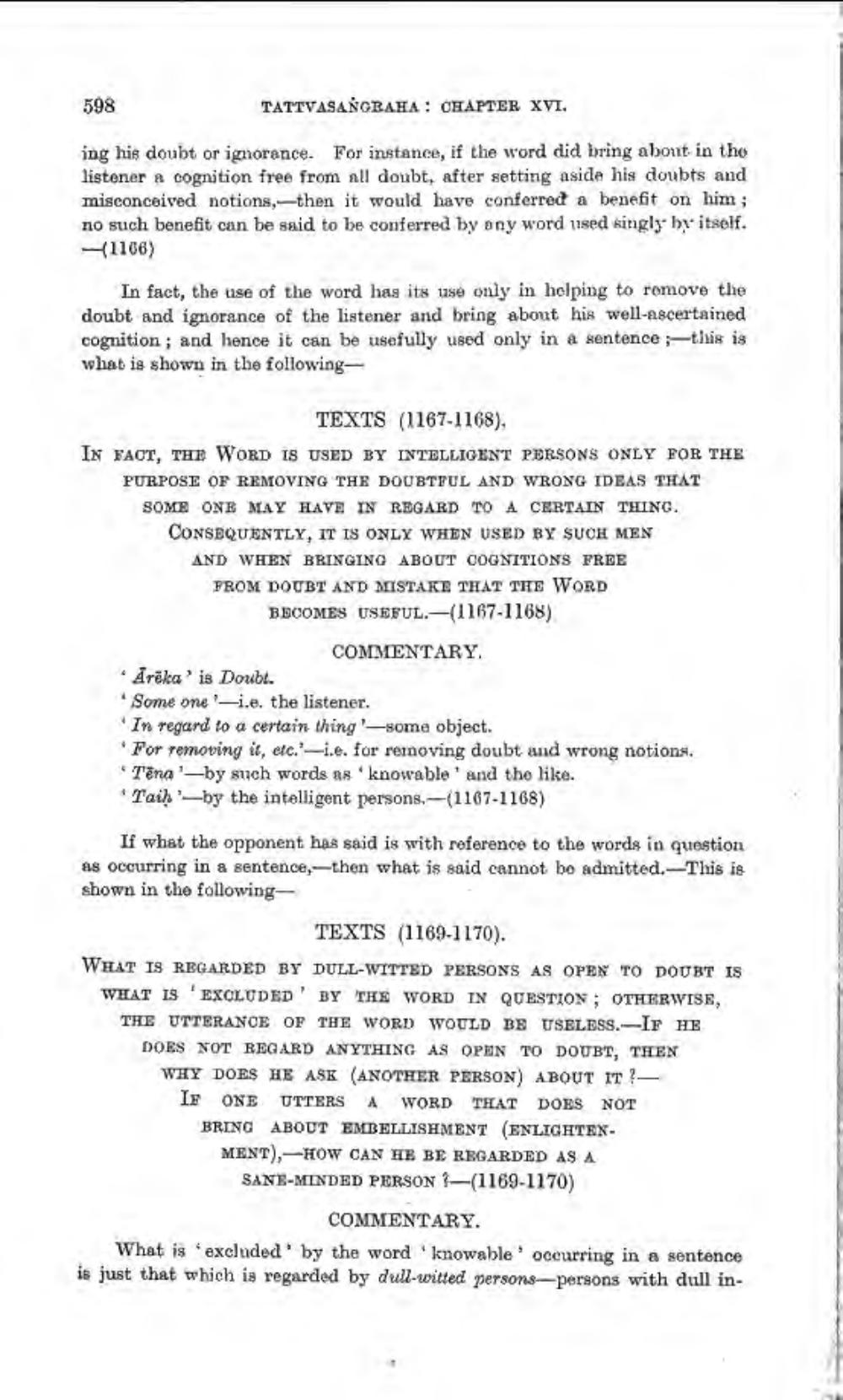________________
598
TATTVASANGBAHA : CHAPTER XVI.
ing his doubt or ignorance. For instance, if the word did bring about in the listener a cognition free from all doubt, after setting aside his doubts and misconceived notions,--then it would have conferred a benefit on him ; no such benefit can be said to be conferred by any word used singly, by itself. -1106)
In fact, the use of the word has its use only in helping to remove the doubt and ignorance of the listener and bring about his well-ascertained cognition; and hence it can be usefully used only in a sentence ;-this is what is shown in the following
TEXTS (1167-1168), IN FACT, THE WORD IS USED BY INTELLIGENT PERSONS ONLY FOR THE
PURPOSE OF REMOVING THE DOUBTFUL AND WRONG IDEAS THAT SOME ONE MAY HAVE IN REGARD TO A CERTAIN THINC. CONSBQUENTLY, IT IS ONLY WHEN USED BY SUCH MEN AND WHEN BRINGING ABOUT COGNITIONS FREE FROM DOUBT AND MISTAKE THAT THE WORD BBCOMES USEFUL.-(1167-1168)
COMMENTARY Ārēka' is Doubt. Some one i.e. the listener. In regard to a certain thing some object. For removing it, etc.'-i.e. for reinoving doubt and wrong notions. Tēna '-by such words as knowable and the like. Tai by the intelligent persons.-(1107-1168)
If what the opponent has said is with reference to the words in question as occurring in a sentence,-then what is said cannot be admitted.--This is shown in the following
TEXTS (1169-1170). WHAT IS REGARDED BY DULL-WITTED PERSONS AS OPEN TO DOUBT IS WHAT IS 'EXOLUDED BY THE WORD IN QUESTION; OTHERWISE, THE UTTERANCE OF THE WORD WOULD BE USELESS. IF HE DOES NOT REGARD ANYTHING AS OPON TO DOUBT, THEN WHY DOES HE ASK (ANOTHER PERSON) ABOUT IT ? - IF ONE UTTERS A WORD THAT DOES NOT BRING ABOUT EMBELLISHMENT (ENLIGHTENMENT), HOW CAN HE BE REGARDED AS A SANE-MINDED PERSON 1-(1169-1170)
COMMENTARY. What is excluded by the word 'knowable' occurring in a sentence is just that which is regarded by dull-witted persons-persons with dull in




